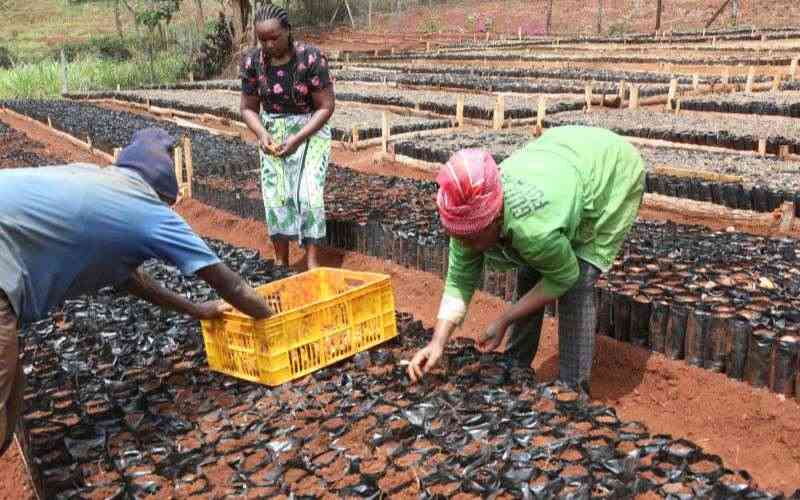×
The Standard e-Paper
Kenya’s Boldest Voice

The national campaign to increase the country's forest cover to more than 30 per cent is a blessing to dynamic farmers who have seen a new business opportunity- growing and selling tree seedlings. One such farmer is Lameck Kabuti, 26, who dropped out of a Bachelors Degree course in Planning and Management from the University of Eldoret following injuries from a road accident in 2018.
"I chose to venture into seed propagating business when I realised hopes of getting an office job were minimal," he says.